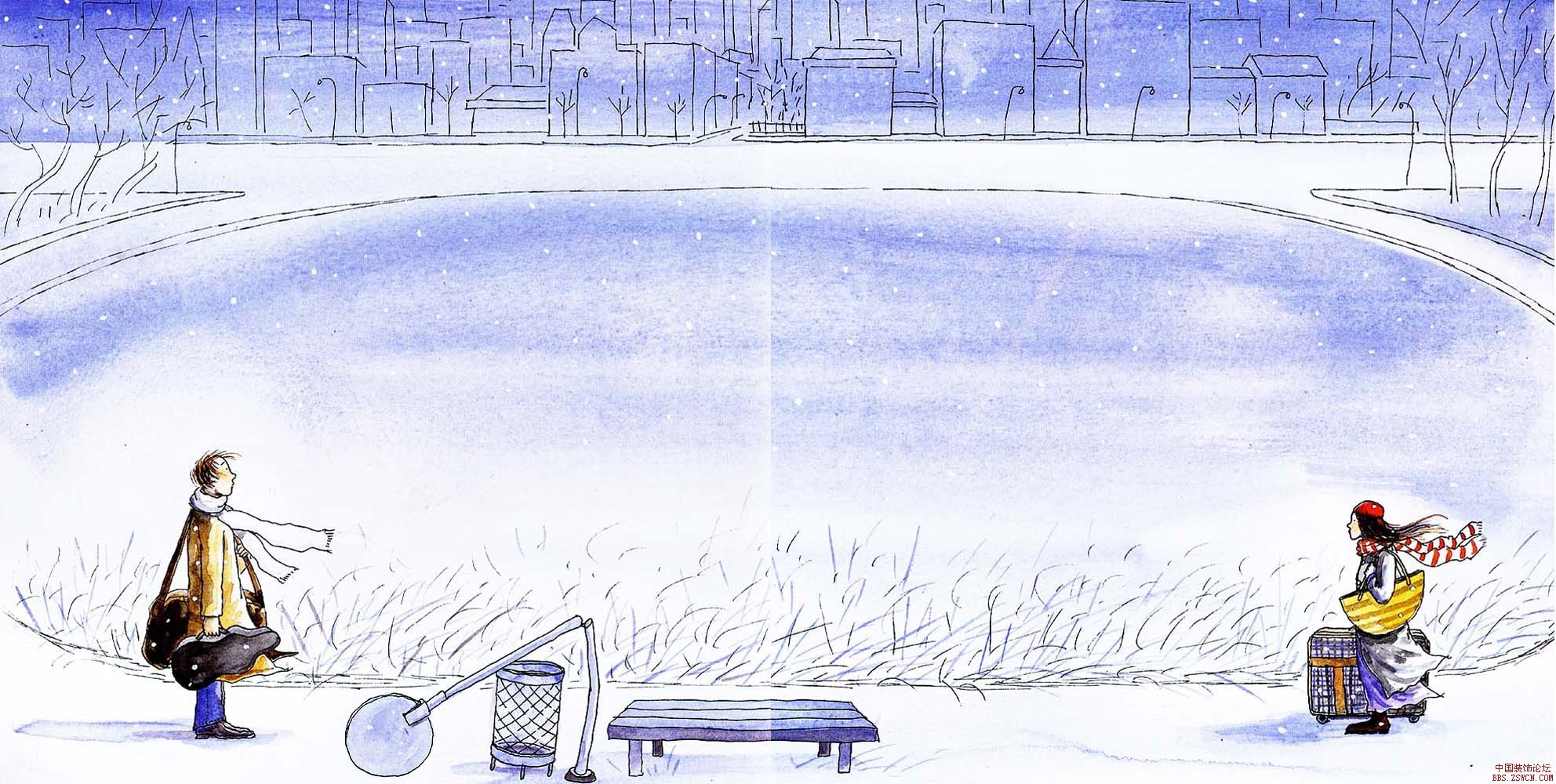我最近受到了一些启发,觉得把读书笔记都写成鸡汤文总不是特别合适。但是由于受到八股文教育荼毒颇深,我发现不论读了什么东西总是能挖掘出积极向上的内涵。于是我决定先放下一篇没写好的鸡汤,分享一本并没有什么意义的书。

读诗本身就是一件矫揉造作的事儿,十多年前上高中的时候或许还能在书店捧本诗集坐一下午,如今早就觉得太矫情了。这本《诗的时光书》,多半是几年前在网上购书是凑单打折买的,买回来以后连塑封都一直没舍得拆,搬来搬去尘封了许久。去年一个朋友来家里玩,看着我的书架和我说,你怎么有一本这么好的书都没看过。我这才想起来,我已经好久没有坐下来读点“没意义”的东西了。
科技发展的太迅速,记得我高中的时候特别流行送书,有个同学送过我一本林清玄的散文集《感性的蝴蝶》,恰好我高考时候语文的阅读就选自这本书里的一篇文章(是的,我运气一直都是这么好,不要太羡慕我)。那个时候还没有iPhone,更没有Kindle或者iPad,有显示屏的MP3都是高级货,读诗读散文的时候看到优美的文字都会找个小本子抄下来,说不定什么时候写作文就可以装一下X。现如今每天刷刷朋友圈和微博,茶余饭后的论调都是“科技新闻”,如果不小心说我最近读了一首诗,一定得吓得全场冷场。
这本书收录了西方诗歌史上的一流佳作,诗人的命运和评者的心绪恰如其分的糅合在一起,加上岁月淘洗过的诗歌韵味,透过文字,慢慢的和二十一位诗人来一场精神邂逅。故事很多也很丰满,要细心品读才能体会到个中滋味。在这里我和大家分享书里的三首诗,也谈谈西方古典诗歌独特的魅力。
1. 《当你老了》
这首诗你可能没有读过,但这首歌你一定听过。歌词的中文部分改自爱尔兰诗人叶芝的《When you are old》,赵照填词谱曲后,这首歌被莫文蔚和李健唱红了大江南北。但据说早在2001年的歌曲《一生有你》中,歌词“多少人曾爱慕你年轻时的容颜”就源自叶芝的这首诗。
When You Are Old
by W. B. YeatsWhen you are old and grey and full of sleep,
And nodding by the fire, take down this book,
And slowly read, and dream of the soft look
Your eyes had once, and of their shadows deep.How Many loved your moments of glad grace,
And loved your beauty with love false or true,
But one man loved the pilgrim soul in you,
And loved the sorrows of your changing face.And bending down beside the glowing bars,
Murmur, a little sadly, how love fled
And paced upon the mountains overhead
And hid his face amid a crowd of stars.
很多人都知道,中国的新诗是从西方诗歌中学过来的,但他们也想当然的认为西方诗歌和中国的新诗一样,是所谓的“自由体”。事实上,西方诗歌的中文翻译才是“自由体”新诗的模板,而“翻译”丢失了西方诗歌的格律之美。以这首诗为例,这首诗分为三个小节,每个小节都以 abba 的形式押韵,如 “sleep/book/look/deep”,另外两个小节也是如此。另外需要注意到的,古典中文诗歌中每一行都拥有相对完整的语义和语法结构,但英语由于其语言的特殊性,在保证每一行固定的音节数和韵尾时,常常采用更为自由的断行形式(中文的自由体新诗也有很多奇特的断行方式,我就随口一提),例如第一小节的最后两行可以理解为:“And slowly read, and dream of the soft look your eyes had once, and dream of their shadows deep.”
2. 《一见钟情》
这首诗不见得特别出名,诗的作者辛波丝卡听起来也是蛮冷门的名字。但如果我说起幾米的绘本《向左右,向右走》,应该有不少人能回忆起下面的句子:“他们彼此深信,是瞬间迸发的热情让他们相遇,这样的确定是美丽的,但变幻无常更为美丽。”辛波斯卡是波兰女作家,同时也是优秀的翻译家,将很多著名的法语诗歌翻译为波兰语。她在1996年摘得诺贝尔文学奖,成为第三位获得这一殊荣的女诗人。

Love at First Sight
by Wislawa SzymborskaThey’re both convinced
that a sudden passion joined them.
Such certainty is beautiful,
but uncertainty is more beautiful till.Since they’d never met before, they’re sure
that there’d been nothing between them.
But what’s the word from the streets, staircases, hallways-
perhaps they’ve passed be each other a million times?I want to ask them
if they don’t remember-
a moment face to face
in some revolving door?
perhaps a “sorry” muttered in a crowd?
a cut “wrong number” caught in the receiver?
but I know the answer
No, they don’t remember.They’d be amazed to hear
that Chance has been toying with them
now for years.Not quite ready yet
to become their Destiny,
it pushed them close, drove them apart,
it barred their path,
stifling a laugh,
and then leaped aside.There were signs and signals,
even if they couldn’t read them yet.
Perhaps three years ago
or just last Tuesday
a certain leaf fluttered
from one shoulder to anther?
Something was dropped and then picked up
Who knows, maybe the ball that vanished
into childhood’s ticket?There were doorknobs and doorbells
where one touch had covered another
beforehand.
suitcases checked and standing side by side.
One night, perhaps, the same dream,
grown hazy by morning.Every beginning
in only a sequel, after all,
and the book of events
is always open halfway through.(Translated by Stanislay Baranczak & Clare Cavanagh)
网上可以找到波兰语原文的朗诵,原文优美独特的声韵是任何翻译都不能比拟的。
不能否认的是,在1999年,《向左走,向右走》作为面向大人的绘本获得了巨大的成功,这本漫画后来被改编成电影于2003年上映,在台湾、香港以及星马等地都是上映首周的票房冠军。书中引用的一段评述让我映像深刻。
现代中国的都市年轻人普遍都感到迷茫和孤独,他们需要温暖的颜色,需要新的童话来帮助自己对抗这个冰冷无趣的成年人的世界,他们一时适应不了“长大成人”的压力,他们渴望找回过去那种毫无功利色彩的单纯而诗意的人际关系,他们渴望爱与被爱,也怀疑爱与被爱,每个人都置身于一个大的惊人的人际网络里,但这是成人世界功利的甚至是尔虞我诈的人际网络,你身边的人越多,你反而感到孤独……而且,当你陷入这种孤独的时候,你并不知道其实旁人——或许就是你身边最近的人——也和你一样孤独。
3. 《葬礼蓝调》
正如中国的读者因为幾米才知道辛波丝卡,因为《非诚勿扰》才知道仓央嘉措一样,1994年,久已淡出大众视野的奥登因为同年的一部电影《四个婚礼和一个葬礼》掀起了新一轮的阅读兴趣。这部电影可能也十分小众,但如果我指出这部影片获得了第67届奥斯卡最佳影片提名,大家应该能想起同年获得提名的《肖申克的救赎》,以及当年摘得最佳影片的《阿甘正传》。《四个婚礼和一个葬礼》中的葬礼上所朗诵的悼词,就是奥登的这首《葬礼蓝调》。
Funeral Blues
by W. H. AudenStop all the clocks, cut off the telephone,
Prevent the dog from barking with a juicy bone,
Silence the pianos and with muffled drum
Bring out the coffin, let the mourners come.
Let aeroplanes circle moaning overhead
Scribbling on the sky the message: He is Dead,
Put crepe bows round the white necks of the public doves,
Let the traffic policemen wear black cotton gloves.
He was my North, my South, my East and West,
My working week and my Sunday rest,
My noon, my midnight, my talk, my song;
I thought that love would last forever; I was wrong.
The stars are not wanted now: put out every one;
Pack up the moon and dismantle the sun;
Pour away the ocean and sweep up the wood,
For nothing now can ever come to any good.
奥登的这首诗不在像是古典的情歌,一些诸如“飞机”、“交警”这样的在传统意义上不会在诗歌中出现的词汇展现了奥登肆无忌惮的遣词造句。这种直白的哀悼,不加任何掩饰,语无伦次的述说了一个诗人在痛失所爱的时候能说的所有疯话。
我想书中所提及的诗歌和故事是不容易一下子就讲完的,但更多的时候,阅读能感受到的不仅仅是意义,而更多的是一种美妙的感觉。我想这一篇就用威廉·莫里斯的长诗《大地乐园》(The Earthly Paradise)中的一段作为结尾吧
Of Heaven or Hell I have no power to sing,
I cannot ease the burden of your fears,
Or make quick-coming death a little thing,
Or bring again the pleasure of past years,
Nor for my words shall ye forget your tears,
Or hope again for ought that I can say,
The idle singer of an empty day…
我只是个空虚时代的无用诗人。
你可能也喜欢:


